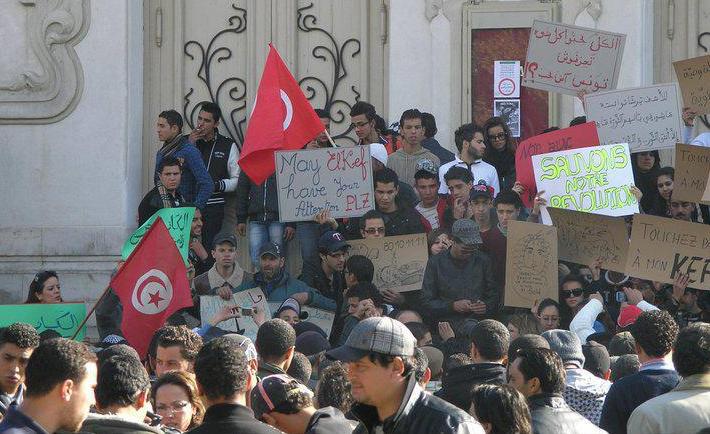Nearly five years after protests against former authoritarian leader Zine El Abidine Ben Ali began in December 2010, Tunisia has adopted a modern constitution and, for the first time, democratically elected a new legislature and president. Tunisia has been lauded as an inspirational -- though not untroubled -- democracy within the Middle East and North Africa region.
Several factors have made Tunisia more successful than its regional neighbors in its transition to democracy. First, Tunisia took time to develop a constitution rather than rushing into potentially destabilizing snap elections. Second, the military remained focused on defense and did not enter the political fray. Third, civil society organizations were allowed to flourish and were treated as an important partner in the democratic transition. Fourth, Tunisia’s political leadership generally avoided polarization, instead seeking compromise. The international community hopes Tunisia’s example can inspire similar developments in neighboring countries.
The process of getting to the December 2014 elections was not without obstacles. The prolonged constitution-drafting process was tested by political deadlock and rocked by assassinations. The road forward has not -- and will not -- be easy.
Tunisia’s new government struggles to tackle growing economic and security challenges while trying to effectively communicate its efforts to citizens, who grow increasingly frustrated with the economy’s post-revolution stagnation. Tunisia’s middle class suffers growing economic pressure as the price of necessities has steadily risen. Political uncertainties since 2011 stalled much-needed domestic and international investment, while the country’s economic driver, the tourism sector, is in crisis following two recent terrorist attacks targeting the tourism industry.
Compounding these concerns is citizen disillusionment with the perceived lack of progress. Showing that democracy can deliver results is often the most challenging part of a transition, when expectations outpace capacities and immediate anxieties challenge long-term goals.
Yet there are reasons to be hopeful that Tunisia will stay on course and continue to serve as an inspiration beyond its borders. The United States and the international community must remain engaged and supportive of the Tunisian government as it finds the right balance between security and the respect for freedoms.
Throughout the transition, NDI has provided Tunisia’s political leadership with advice and information on comparative experiences in managing complex negotiations. Through the United States Agency for International Development, the State Department’s Middle East Partnership Initiative and other organizations, NDI received funding for political party, election observation and debate programs in Tunisia within weeks of Ben Ali’s departure.
As Tunisia enters a new phase of governance, international communities should continue to encourage inclusive political parties, and women’s and youth’s political participation. NDI is currently working directly with the new parliament to support individual members and parliamentary groups.
Despite Tunisia's numerous challenges, reason for hope – and active engagement – remains. Tunisia's transition has moved forward in fits and starts, but remains on track. To ensure the current security concerns and economic difficulties do not encourage undemocratic intervention in the process, it is important that the U.S. government and international community continue to support the new Tunisian government as it makes difficult choices.
** This blog post is based on Leslie Campbell’s testimony before the U.S. Congress on July 14, 2015. To read the full testimony, click here **


